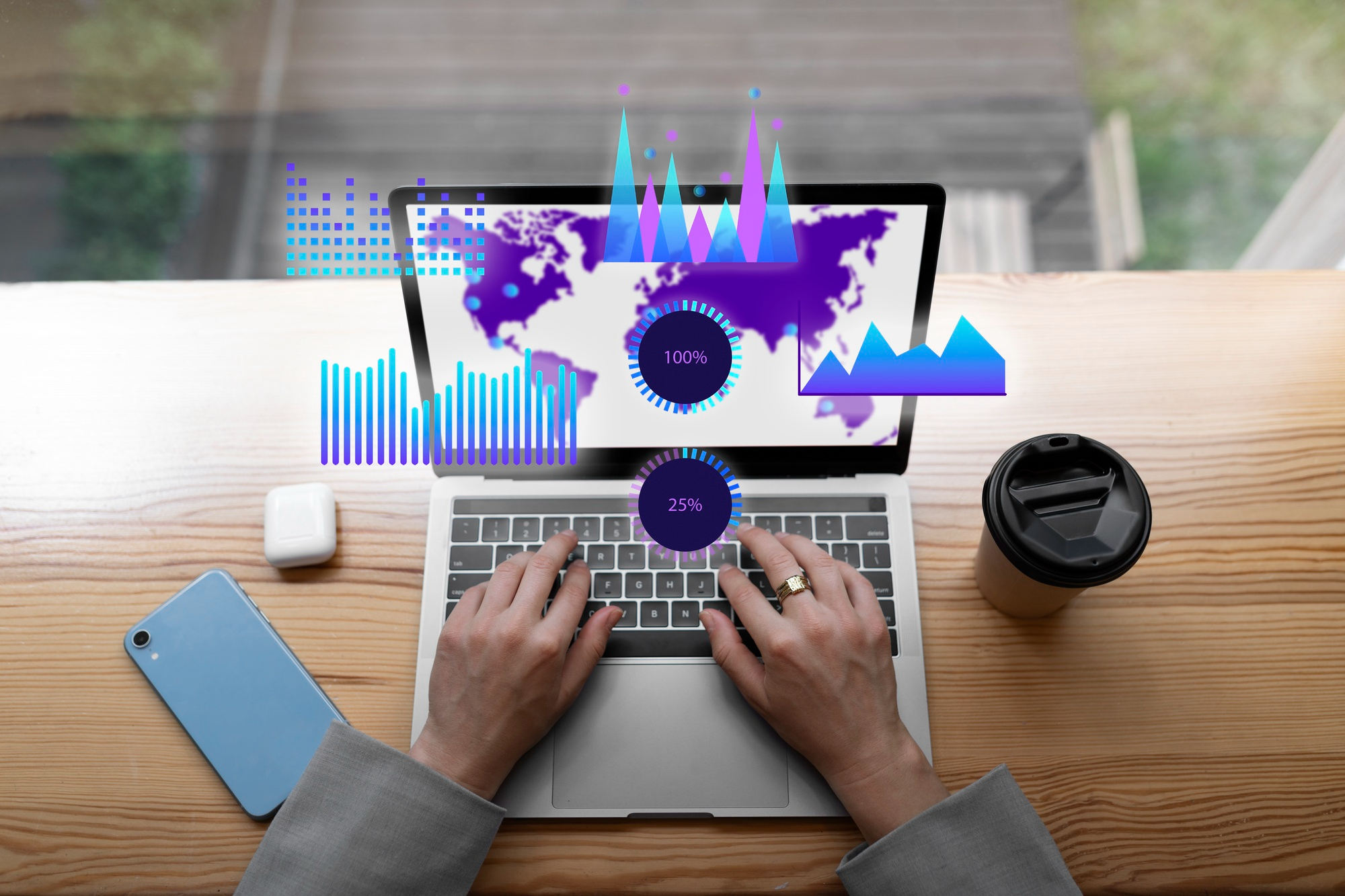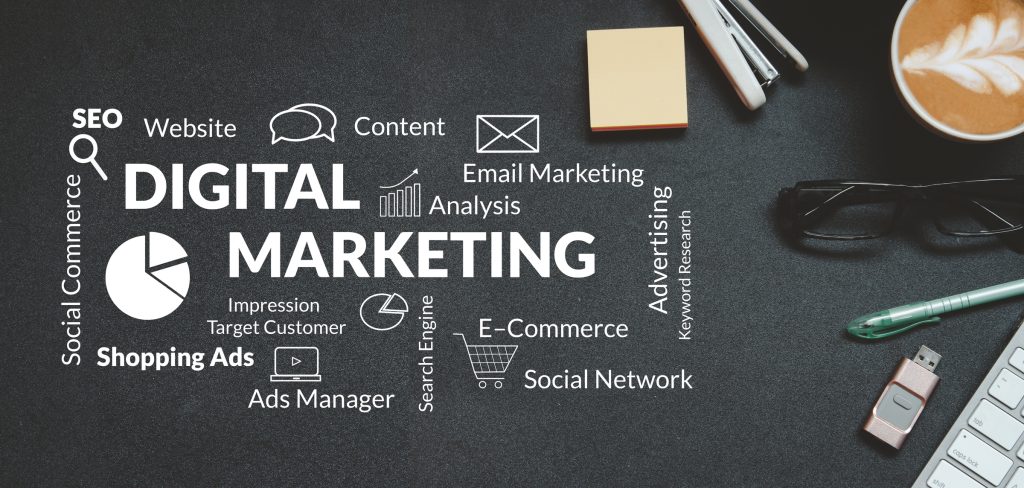In today’s digitalized world, data is at the heart of every decision. Businesses use a vast amount of consumer data to make the right decisions and stay competitive and relevant in the market. Furthermore, it helps businesses better understand customers and their demands so that they can easily produce what consumers want.
However, without the right tools, this data has untapped potential. Deep learning, a subset of AI, has revolutionized digital marketing; as with the help of deep learning, marketers can transform raw data into actionable insights, driving better return on investment (ROI) through personalized campaigns, improved customer engagement, and optimized ad strategies.
Understanding Deep Learning and Its Role in Digital Marketing
Deep learning is a machine learning technique that mimics the workings of the human brain through artificial neural networks. These networks learn from large datasets, identifying patterns, trends, and correlations that traditional analytics methods might miss. In digital marketing, deep learning enables companies to automate processes, make data-driven decisions, and personalize customer experiences.
Deep learning models can adjust marketing strategies in real-time by continuously learning from customer behavior and feedback. This adaptability is key to improving the effectiveness of marketing campaigns, optimizing resources, and enhancing ROI. Thus, being a marketer, enrolling in a deep learning course can be highly beneficial for you.
How Deep Learning Boosts Digital Marketing ROI
Deep learning contributes to better marketing ROI by allowing businesses to extract valuable insights from customer data, enhance personalization, and streamline marketing processes. Below are some key ways in which deep learning enhances digital marketing and ROI:
Predictive Analytics for Better Targeting
One of the biggest advantages of deep learning in digital marketing is its ability to make precise predictions. Through predictive analytics, deep learning algorithms can forecast consumer behavior, identifying patterns that help businesses target the right customers at the right time.
For instance, deep learning can analyze past purchasing behavior, social media interactions, and browsing history to predict which products a customer is most likely to purchase. This allows businesses to create highly targeted campaigns, ensuring their marketing efforts are directed toward consumers with the highest likelihood of conversion. As a result, businesses see higher engagement rates, improved customer satisfaction, and, ultimately, better ROI.
Enhanced Personalization for Better Customer Experience
Today’s consumers expect personalized experiences. Deep learning enables businesses to analyze consumer behavior on a granular level, providing insights that help create tailored content and offers.
For example, deep learning models can track user behavior across various platforms—social media, emails, websites—and deliver personalized product recommendations. Netflix and Amazon use deep learning to recommend shows or products based on individual user preferences. Similarly, in digital marketing, these recommendations can be applied to emails, social media ads, and website content, improving relevance and engagement.
Automated Content Creation and Optimization
Creating high-quality, relevant content is a challenge for digital marketers, but deep learning can help. By analyzing user engagement with past content, deep learning models can identify what resonates with audiences. These insights allow businesses to create optimized content that aligns with customer preferences.
Additionally, deep learning can automate the creation of personalized content at scale. For instance, AI-powered tools like chatbots can engage customers in personalized conversations, providing information or recommendations based on their behavior. This level of customization not only enhances the customer experience but also improves conversion rates, leading to higher marketing ROI.
Optimizing Ad Campaigns with Real-Time Data
Deep learning’s ability to analyze data in real-time is a game-changer for digital ad campaigns. In traditional marketing, businesses would launch a campaign, wait for results, and then make adjustments. With deep learning, marketing teams can use real-time data to optimize campaigns on the fly.
For example, deep learning algorithms can analyze real-time customer interactions with ads and make instant decisions on ad placements, targeting, and bidding strategies. This dynamic optimization ensures that businesses get the most out of their ad spend by focusing on high-performing segments and channels. By delivering ads to the right audience at the right time, businesses can maximize their ad spend, reducing waste and driving better ROI.
At our online trading academy, we’ve seen how real-time data analysis can similarly benefit traders. Just like deep learning allows marketers to adjust campaigns instantly based on customer feedback, traders can adjust their strategies based on market behavior, news events, and price movements. By using predictive analytics, traders can make smarter decisions in real time, leading to improved outcomes and a better understanding of market conditions.
Improving Customer Segmentation
Accurate customer segmentation is crucial for effective marketing, and deep learning excels in this area. Traditional segmentation often involves dividing customers into broad categories based on demographics or purchase history. However, deep learning can create more nuanced segments by analyzing a combination of factors, including social media activity, browsing behavior, and interactions with customer support. By understanding customer preferences and behavior more precisely, businesses can create highly targeted campaigns for each segment.
Accurate segmentation also depends on the quality of the data being analyzed. Invalid or outdated contact information can lead to ineffective campaigns and wasted resources. That’s why it’s crucial to maintain clean email lists before deploying deep learning-driven campaigns. Tools that allow businesses to verify email addresses in bulk help ensure that the data feeding into segmentation models is accurate and reliable. This step not only improves deliverability but also increases the overall effectiveness of targeted marketing efforts.
Social Media Listening and Sentiment Analysis
Social media has become a powerful marketing tool, but it’s also a challenging environment for businesses to navigate due to the vast amount of data generated every day. Deep learning helps businesses make sense of this data through social media listening and sentiment analysis.
By analyzing social media posts, comments, and reviews, deep learning algorithms can detect customer sentiment – whether it’s positive, negative, or neutral
Chatbots and Customer Support Automation
In addition to improving marketing efforts, deep learning enhances customer support through the use of AI-powered chatbots. These chatbots can handle customer inquiries, provide personalized recommendations, and even solve common problems, all without human intervention.
Reducing Churn and Improving Retention
One of the major factors impacting ROI is customer retention. Acquiring a new customer is often more expensive than retaining an existing one. Deep learning can help businesses predict customer churn and take proactive steps to prevent it.
To sum up, deep learning has revolutionized digital marketing by turning massive datasets into actionable insights that drive smarter decisions and better outcomes. From predictive analytics to personalized customer experiences, deep learning empowers businesses to enhance their marketing strategies and maximize their return on investment.
To fully leverage deep learning tools in digital marketing, businesses also need a reliable IT infrastructure that can support continuous data processing, integration, and security. For example, companies offering managed IT services, such as Orange Crew, help organizations maintain the systems that power real-time analytics, cloud-based tools, and customer data platforms. These providers typically assist with tasks like proactive support, secure cloud migrations, and ongoing system monitoring, which are essential when implementing advanced machine learning models. By ensuring that backend systems are stable and optimized, businesses can avoid disruptions and focus on interpreting insights and refining marketing strategies. This operational support is critical in turning AI-driven decisions into real, measurable ROI.
The increasing significance of deep learning applications in business has increased the demand for individuals with these skills. Thus, enrolling in a deep learning certification course can help you stay ahead of the curve and have better career growth prospects.
___
source: Talentsprint.com









